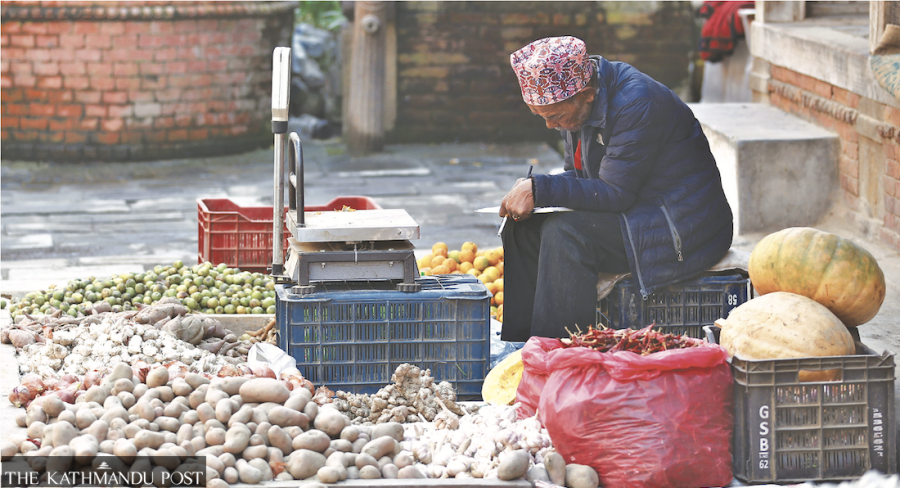Editorial
Feeling the inflationary heat
Policymakers have done nothing much to contain inflation, which is primarily import driven.
When Nepal's central bank conducted a survey on inflation, the results didn't cause any flutter amongst officials, economists or the people in general—primarily because the perception of inflation isn't just based on some whim, a steady increase in fuel prices across the nation has directly affected the cost of consumables. In the last eight months, the price of gasoline has increased by more than 15 percent. This has a direct impact on freight costs, and the resultant rise in prices has been reflected in kitchen staples.
People's expectations play a significant role in affecting market forces, and eventually, prices. Since Nepal relies heavily on imports, the impact of global inflationary pressure is factored into local decisions. Because we rely so heavily on imports, we in Nepal can do nothing other than bear the brunt of the consequences outside our control. Oil prices that had slumped at the start of the pandemic due to lower demand have since rocketed, and oil supplies are seen to be further disrupted by the ongoing Ukraine crisis.
The other crucial reason for the increase in prices of imports is the hike in shipping and air freight costs. Shipping companies have been overwhelmed by a surge in demand after the pandemic, and Nepal, with its geographical constraints and limited port access, has no cheaper way to source its requirements. Retailers will pass on the excess cost to the ultimate consumers with no other recourse. But alarmingly, policymakers in Nepal have done nothing much to contain inflation, which is primarily import driven. The central bank's measure to control inflation by tweaking the interest rate may be a tried and tested formula, but we need to urgently adjust our import policy.
Our intention to recalibrate import policy shouldn't just contain the current spiralling costs problem. It is also about propping up the agricultural sector, which we could run successfully. Due to years of neglect and faulty policies, we have systematically managed to destroy the livelihood of our farmers. While home-grown produce has been left to rot, trucks laden with fruits and vegetables, mainly from India, have unfettered access to our markets, thus pushing our farmers further into debt without much help from the government. It is ironic that a country touted as an agricultural country ended up importing Rs325 billion worth of agricultural produce in the last fiscal year which ended on July 15, 2021.
Balancing our imports would also stem the depletion of our foreign exchange reserves. Nepal's total import bill reached close to a staggering Rs1 trillion just six months into the current fiscal year. Perhaps the pandemic is receding, and the job markets will pick up again to their pre-pandemic fervour allowing for replenishment of our depleted foreign exchange reserves. But surely the current import policy needs to be overhauled to suit our needs. And while we expect market prices to increase for the next few months, let's hope that we have the forbearance to put up with it.




 14.12°C Kathmandu
14.12°C Kathmandu














